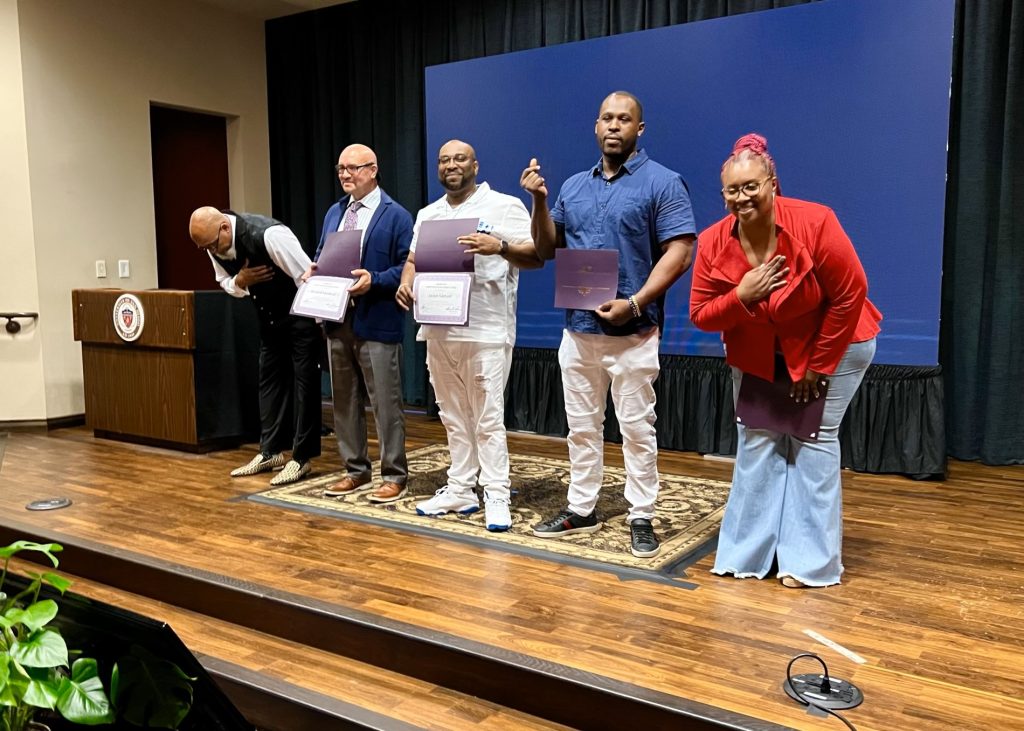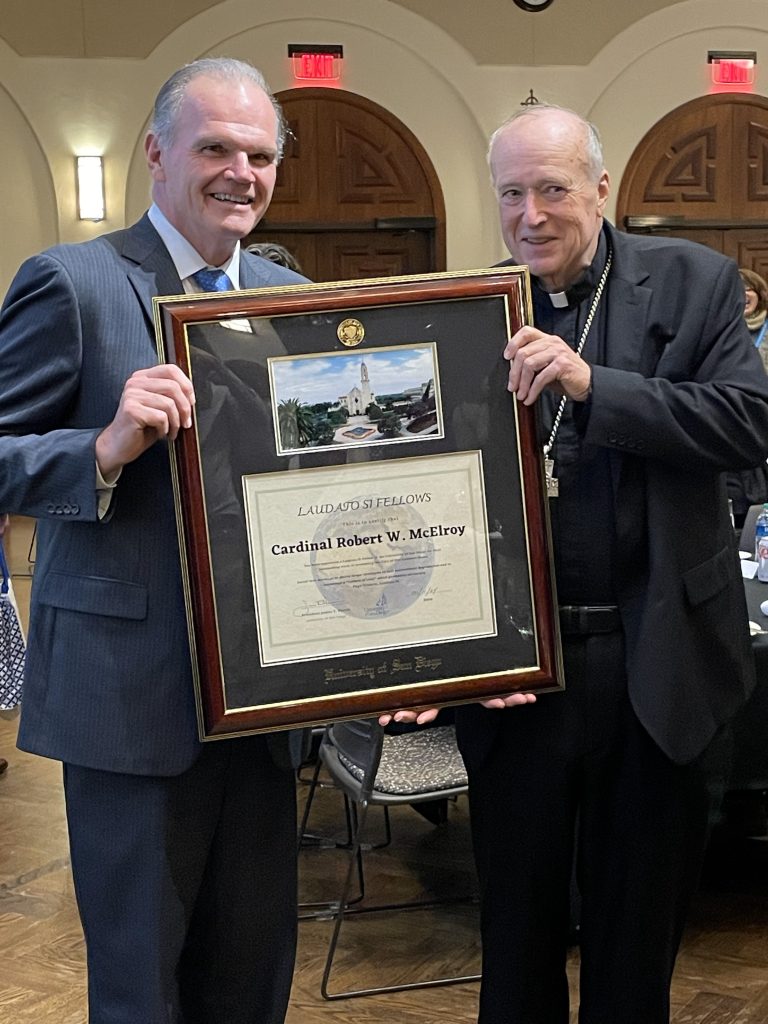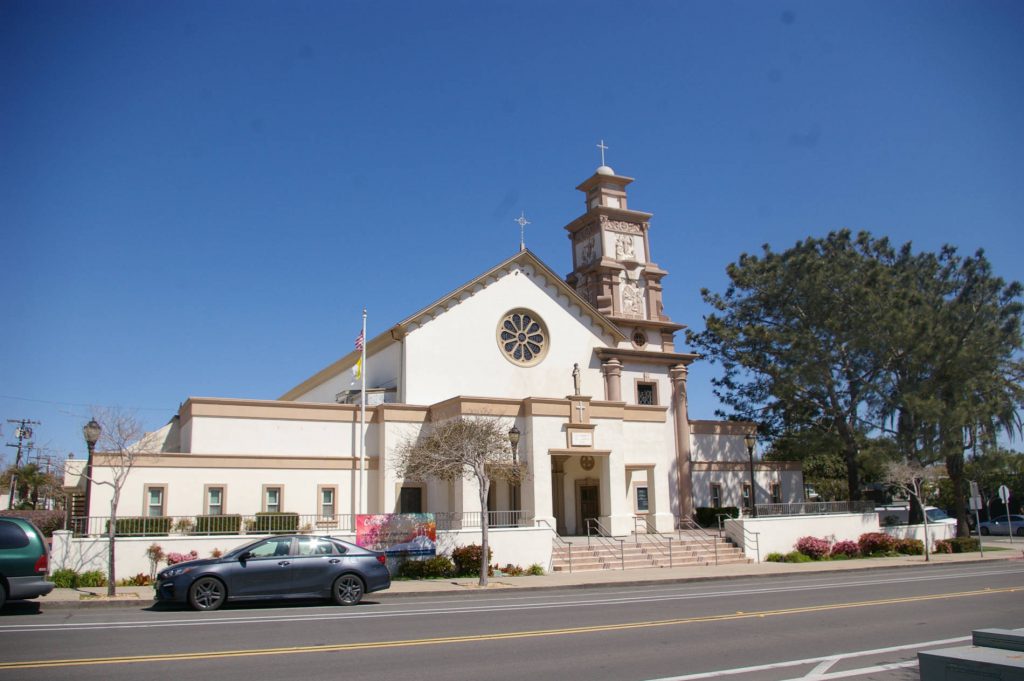SAN DIEGO – In the early days of the COVID-19 pandemic, Dr. Wendell Callahan became aware of two demographic groups with needs.
Counseling graduate students at the University of San Diego faced the challenge of completing their required hours of direct client contact amidst a statewide lockdown.
At the same time, Callahan felt that elderly parishioners at St. Brigid Parish in Pacific Beach would benefit from more regular check-ins.
Callahan is a professor and director of the counseling program in USD’s Department of Counseling & Marital and Family Therapy. He has also been a member of St. Brigid Parish for about 25 years.
To address both needs, Callahan started a new program in which counseling students would make “wellness check” phone calls to some of St. Brigid’s older parishioners as frequently as once a week. The names and contact information for those seniors were provided by St. Brigid’s ministry to the homebound.
For their first phone calls, the students were trained to ask about the seniors’ current situation and any needs they might have, remind them about the importance of wearing face masks and washing hands frequently, and provide information about streaming and televised Masses.
“Once that initial rapport was established, then it became more of a social call,” said Callahan, who describes it as a “deceptively simple” program.
He pointed out that social isolation poses major health risks, especially for seniors.
“With the elderly,” he told the students, “that phone call might be as therapeutic as an hour-long counseling session, even if you’re just talking about the weather.”
Callahan said that, during a typical call, the student and senior might discuss current events, recent experiences in their own lives, and whether the senior has been receiving adequate nutrition and making it to medical appointments. Callahan said it is not unusual for seniors and students to pray together if the senior desires it.
Teodora Dillard, 25, is working toward a degree in school-based clinical counseling and will be graduating in May. She is currently making regular wellness checks to seven seniors and one parishioner in his 40s who is homebound because of disability.
“My primary goal is just to have a conversation,” said Dillard, who shared that one of her seniors kindly offered to help her prepare for job interviews for school counselor positions.
The wellness check program began last April with a group of four graduate students, who conducted regular calls until their graduation last August. Since September, a second group of four has been making the calls. With their internships no longer curtailed by lockdowns, the current cohort is involved strictly as volunteers and are not earning credit hours.
Collectively, the students are reaching about 50 to 60 seniors, who range in age from their mid-80s to over 100, said Callahan. The frequency and timing of the wellness checks are based on the seniors’ preferences.
Callahan meets with the students via Zoom every other week. They go down the call list provided by the parish homebound ministry, and the students report whether their seniors have expressed any needs. The more common ones have included groceries, yard work, and parish information. Callahan brings those needs to the attention of the homebound ministry, which sees that they are addressed.
Eileen Ward, 81, began receiving wellness checks not long after going through surgery in March 2020.
In terms of needs, she didn’t have any that required the students’ help. She did her own grocery shopping, having identified the times of day when the stores were least crowded, and was participating in parish life by watching online Masses. So, for her, the appeal of the new program has primarily been the social aspect, and she figures that has been the case for most of her fellow parishioners.
“Most seniors didn’t have a lot of need for more toilet paper,” said Ward, a St. Brigid parishioner since 1993, explaining that the 20- to 40-minute phone calls became something to look forward to each week.
Though Ward has two sons and five grandchildren, with whom she has kept in touch via Zoom, it has been nice to have “a contact once a week with somebody outside of your normal circle that creates a friendship, and a diversion, and a pause in the day’s continuity.”
Ward is currently receiving weekly calls from Dillard.
In addition to reducing the seniors’ social isolation, the phone calls also appear to benefit the students, Callahan said.
The seniors “have lived through pandemics before; they lived through World War II, and so, it was sort of comforting for the students to hear their perspectives.”
Dillard seems to agree.
“I just really like talking to people who have more wisdom than I do, and who’ve had more life experience, and who are older and are going through different things than I am,” she said.
Though the wellness check program arose out of the COVID-19 pandemic, it seems unlikely to end with it.
“I don’t see an end in sight, to be honest,” Callahan said of the program. “It’s up and running, and it kind of runs itself. As long as we have seniors and as long as we have students interested, I think we’ll continue this.”








